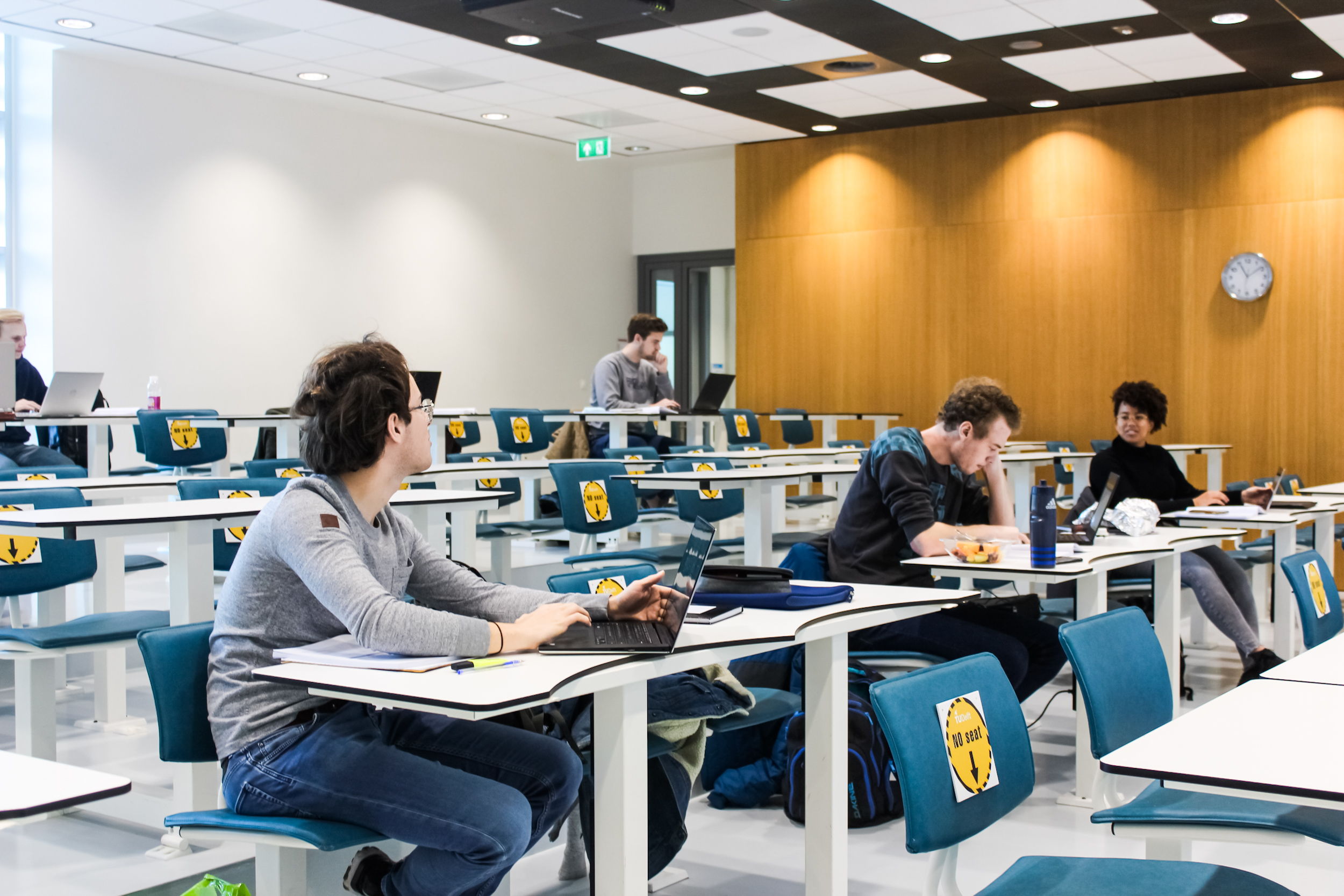Even if self-test deliveries to higher education institutions end up falling short this month, students will still be allowed to go to campus again one day a week.
From 26 April, universities will be allowed to physically teach students one day a week. (Photo: Dalia Madi)
This was announced by the Ministry of Education last week. While the government believes that self-tests will make it possible for higher education institutions to start receiving their students on campus again starting 26 April, self-testing is not the only decisive factor.
Hiccups
There could be challenges along the way: institutions could receive fewer self-tests than expected, or they may be unable to distribute the tests among their students in time. Still, such hiccups would “not be an obstacle” to offering face-to-face education again one day a week, according to a Q&A (in Dutch) published by the Ministry of Education.
Students don’t even have to use the testing kits they receive if they don’t want to. The use of self-tests is “always voluntary”, according to the Ministry. “Students do not have to show a negative test result for building access.”
Social distancing maintained
This is in line with statements made by Education Minister Ingrid Van Engelshoven last week. Institutions will not demand that their students and staff provide a negative test result before being allowed on campus.
Social distancing will be maintained for in-person education, and public transportation may not get too crowded: whether they’ve been tested or not, students can’t all get on the same buses and trains at half past eight in the morning. The self-test programme for higher education will cost the government approximately half a billion euros, including distribution.
In April, pilots will be held at TU Delft that go further than the easing of restrictions announced by the Government. On 19 April, Aerospace Engineering will start a 10 week laboratory course in which bachelor students can work together for the yearly Design Synthesis Exercise. This will involve about 300 students working in groups of 10.This is the most comprehensive lockdown laboratory course to date. There are also plans to establish laboratory courses for Civil Engineering and Geosciences master students.
HOP, Bas Belleman / Delta
Translation: Taalcentrum-VU
Do you have a question or comment about this article?
redactie@hogeronderwijspersbureau.nl


Comments are closed.